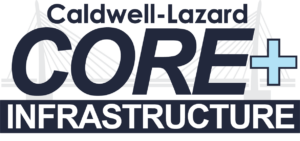Market Overview
Despite some profit-taking during the month, the global equity markets’ 2023 rally continued in July amid speculation about the interest rate-policy paths of key central banks. Select benchmark global equity index performances were as follows: MSCI ACWI +3.66%; MSCI World Index +3.36%; MSCI Emerging Markets Index +6.23% (Net of taxes and in US dollar terms).
Equity markets in both the developed and developing worlds climbed in July, with the latter outperforming the former. In the US, where optimism continued to grow that the Fed can engineer a “soft landing” for the domestic economy, the S&P 500 recorded its fifth consecutive month of gains and ended July less than 5% from the record high it reached in January 2022.
Across the Atlantic, the pan-European STOXX 600 advanced for a second straight month, buoyed by data suggesting inflation in the eurozone had slowed in July and hopes that the ECB would pause its rate-hiking campaign at its next meeting in September. In Japan, the TOPIX advanced for a fifth straight month, as upbeat corporate earnings outweighed worries about rising interest rates after the BOJ adjusted its monetary policy. Meanwhile, in emerging Asia, China’s stock market jumped and recorded its best month since January after the Chinese government promised more support for the country’s faltering post-pandemic economic recovery.
Energy was the best-performing sector in July, as the stock price of oil producers gained after oil prices recorded their biggest rise since January 2022. Healthcare was the worst-performing sector, as July’s risk-on market environment led investors to rotate out of defensive stocks and into economically sensitive ones.
Portfolio Review
The Industrials and Energy were the principal positive contributors to performance whereas Real Estate and Communication Services were detractors from performance. From a country standpoint, holdings in the United States were the primary positive contributors on both an absolute basis and relative to the benchmark index while exposures in Canada were the primary detractors from performance on an absolute basis and the UK was the principal detractor relative to the benchmark index.
Top contributors to performance among the fund’s holdings were: J.B. Hunt Transport Services, Inc. (“JBHT US”, +12.1%; +0.26% contribution), a provider of logistics services; Plug Power (“PLUG US”, +25.6%; +0.25% contribution), a developer of hydrogen systems; Targa Resources (“TRGP US”, +7.8%; +0.24% contribution), a midstream provider of natural gas and natural gas liquids; Uber Technologies (“UBER US”, +14.0%; +0.21% contribution), a leading global mobility and delivery network solutions company; and Digital Realty Trust (“DLR US”, +8.9%; +0.17% contribution), a leading owner-operator of global data centers and technology-related real estate.
Top detractors from performance for the month of July included: SBA Communications Corp (“SBAC US”, -6.0%; -0.16% contribution), a leading owner-operator of wireless communication infrastructure; Crown Castle Inc. (“CCI US”, -5.5%; -0.11% contribution), also a leading owner-operator of wireless communication infrastructure; and SSE PLC (“SSE LN”, -4.2%; -0.10% contribution), an integrated UK utility company.
The information contained herein provides general information about the Fund at a point in time. Investors are strongly encouraged to consult with a financial advisor and review the Simplified Prospectus and Fund Facts documents carefully prior to making investment decisions about the Fund. Commissions, trailing commissions, management fees and expenses all may be associated with mutual fund investments. Mutual funds are not guaranteed; their values change frequently and past performance may not be repeated.
Information and opinions presented have been obtained or derived from sources believed by Lazard Asset Management LLC or its afflliates (“Lazard”) to be reliable. Lazard makes no representation as to their accuracy or completeness. All opinions expressed herein are as of the published date and are subject to change.
Allocations and security selection are subject to change. The performance quoted represents past performance. Past performance is not a reliable indicator of future results. Mention of these securities should not be considered a recommendation or solicitation to purchase or sell the securities. It should not be assumed that any investment in these securities was, or will prove to be, profitable, or that the investment decisions we make in the future will be profitable or equal to the investment performance of securities referenced herein. There is no assurance that any securities referenced herein are currently held in the portfolio or that securities sold have not been repurchased. The securities mentioned may not represent the entire portfolio.
Equity securities will fluctuate in price; the value of your investment will thus fluctuate, and this may result in a loss. Securities in certain non-domestic countries may be less liquid, more volatile, and less subject to governmental supervision than in one’s home market. The values of these securities may be affected by changes in currency rates, application of a country’s specific tax laws, changes in government administration, and economic and monetary policy. Emerging markets securities carry special risks, such as less developed or less efficient trading markets, a lack of company information, and differing auditing and legal standards. The securities markets of emerging markets countries can be extremely volatile; performance can also be influenced by political, social, and economic factors affecting companies in these countries.
Securities and instruments of infrastructure companies are more susceptible to adverse economic or regulatory occurrences affecting their industries. Infrastructure companies may be subject to a variety of factors that may adversely affect their business or operations, including additional costs, competition, regulatory implications, and certain other factors.
Certain information contained herein constitutes “forward-looking statements” which can be identified by the use of forward-looking terminology such as “may,” “will,” “should,” “expect,” “anticipate,” “target,” “intent,” “continue,” or “believe,” or the negatives thereof or other variations thereon or comparable terminology. Due to various risks and uncertainties, actual events may differ materially from those reflected or contemplated in such forward-looking statements.
Published on August 16, 2023

